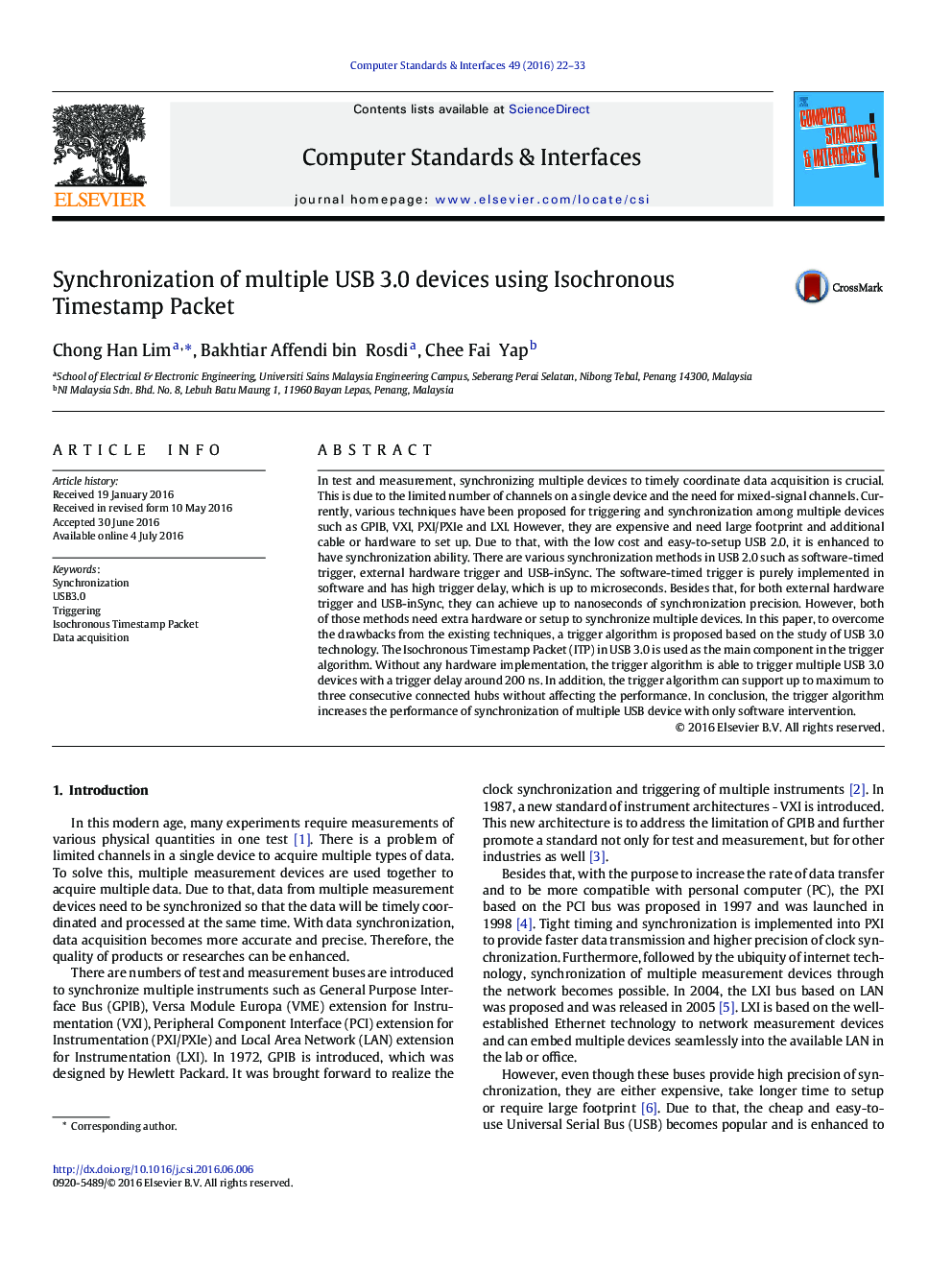| کد مقاله | کد نشریه | سال انتشار | مقاله انگلیسی | نسخه تمام متن |
|---|---|---|---|---|
| 453968 | 695082 | 2017 | 12 صفحه PDF | دانلود رایگان |
• Software-only algorithm to synchronize multiple USB 3.0 devices is proposed.
• The proposed algorithm is practically tested and the precision is around 200 ns.
• The proposed algorithm can support up to maximum of three consecutive connected hubs without affecting the performance.
In test and measurement, synchronizing multiple devices to timely coordinate data acquisition is crucial. This is due to the limited number of channels on a single device and the need for mixed-signal channels. Currently, various techniques have been proposed for triggering and synchronization among multiple devices such as GPIB, VXI, PXI/PXIe and LXI. However, they are expensive and need large footprint and additional cable or hardware to set up. Due to that, with the low cost and easy-to-setup USB 2.0, it is enhanced to have synchronization ability. There are various synchronization methods in USB 2.0 such as software-timed trigger, external hardware trigger and USB-inSync. The software-timed trigger is purely implemented in software and has high trigger delay, which is up to microseconds. Besides that, for both external hardware trigger and USB-inSync, they can achieve up to nanoseconds of synchronization precision. However, both of those methods need extra hardware or setup to synchronize multiple devices. In this paper, to overcome the drawbacks from the existing techniques, a trigger algorithm is proposed based on the study of USB 3.0 technology. The Isochronous Timestamp Packet (ITP) in USB 3.0 is used as the main component in the trigger algorithm. Without any hardware implementation, the trigger algorithm is able to trigger multiple USB 3.0 devices with a trigger delay around 200 ns. In addition, the trigger algorithm can support up to maximum to three consecutive connected hubs without affecting the performance. In conclusion, the trigger algorithm increases the performance of synchronization of multiple USB device with only software intervention.
Journal: Computer Standards & Interfaces - Volume 49, January 2017, Pages 22–33
